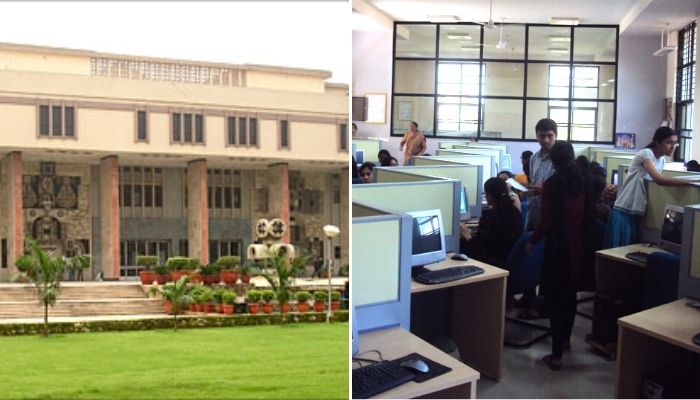Simplifying POSH: How The Judiciary Has Interpreted The Concept Of A ‘Workplace’

Written by: Sheena Verma
Over the last eight months, workplaces across the world have undergone unprecedented changes. The shift to the Work-From-Home (WFH) model is one of those unprecedented changes. As the WFH model became a necessity in order to comply with the COVID-19 protocols, workplace sexual harassment assumed new forms.
Lack of monitoring, regulation, and execution of proper accountability measures have led to a drastic increase in instances of online sexual harassment at work, with people showing up shirtless or intoxicated at meetings with female employees, taking screenshots of female colleagues during meetings, to name a few.
In a recent judgment dealing with sexual harassment at the workplace, the Supreme Court noted that “sexual harassment at the workplace is an affront to the fundamental rights of a woman to equality and to live with dignity.” Therefore, employers need to be aware of how the courts are ensuring that working women are protected from virtual hostile workplaces.
In this piece, I trace the evolution of the definition and scope of “workplace”, as defined under Section 2(o) of the Sexual Harassment of Women at Workplace (Prevention, Prohibition and Redressal) Act, 2013 (hereinafter, POSH Act).
POSH Beyond The Confines Of “The Office”
Statutory interpretation is a process that allows the courts to identify the true intent behind a statute and decide matters accordingly. The POSH Act provides an elaborate but non-exhaustive definition of the workplace. Therefore, the provisions of the Act are to be interpreted in a manner that is inclusive and ensures a harassment-free work environment for women.
The Vishaka guidelines, which formed the basis of the POSH Act, were laid down by the Supreme Court to provide a safer work environment to working women everywhere in the country. The courts have rightly recognized this aim and have adopted a wider interpretation of “workplace” to further the legislative intent behind the Act.



Even pre-POSH jurisprudence points towards the existence of the concept of “extended workplace”. In Saurabh Kumar Mallick v. The CAG of India & Anr, [1] where the respondent argued that he could not be charged with sexual harassment at the workplace because the incident in question had occurred at a place where the complainant was residing, and not the actual workplace – the Delhi High Court rejected the argument.
“A narrow and pedantic approach cannot be taken in defining the term ‘workplace’ by confining the meaning to the commonly understood expression office”, the court observed.
Later in 2015, the Delhi High Court, in its judgment in Gaurav Jain v. Hindustan Latex Family Planning, expanded the scope of workplace to include a place visited by the complainant during the course of employment. It upheld the findings of the ICC and held the respondent guilty even though the incident of sexual harassment had taken place outside the office compound.
Why The Definition Of ‘Workplace’ Needs To Be Kept Wide
The Calcutta High Court’s judgment in Ayesha Khatun vs. The State of West Bengal and Ors, [2] was on similar lines, wherein it emphasised the importance of implementing the Vishaka guidelines while dealing with cases of sexual harassment. “Workplace cannot be given a restricted meaning so as to restrict the application of the said guidelines to the compound of the workplace”, the court stated.
In yet another judgment in Jaya Kodate vs. Rashtrasant Tukdoji Maharaj Nagpur University, [3] the Bombay High Court reiterated that “[the] definition [of workplace] is inclusive and deliberately kept wide by the Parliament to ensure that any area where women may be subjected to Sexual Harassment is not left unattended or unprovoked for.” The judgment also stated that a woman cannot be disrespected at her workplace and the same applies when she is at the workplace of the alleged accused.



Factoring In The Pandemic: What The Rajasthan HC Recently Said
Recently, the Rajasthan High Court branched out the ambit of “workplace” to include the different state branches under one common workplace. The accused had been harassing a female employee posted at a different branch via online messaging.
He argued that the ICC had no jurisdiction over the matter because he was working at a different branch. The court rejected the argument and held that “harassing a lady who may be posted at a different state, would [still] come within the ambit of being harassed in a common workplace”.
Thus, the courts have made their stance amply clear that any unwelcome act or behaviour, regardless of whether it takes place physically or virtually, shall fall under the ambit of the POSH Act.
Moreover, Section 67 of the Information Technology Act, 2000 provides for punishment in case of transmission of sexually explicit content in an electronic form. Women can also initiate action against online harassment under Sections 354A, 354D, or 509 of the Indian Penal Code, 1860.
Conclusion
Even though the Indian courts have unanimously adopted a liberal approach in deciding cases of sexual harassment, it is important to consider that most cases do not reach the courts and are settled by the Internal Complaints Committee (hereinafter, ICC) of each workplace. The primary role in ensuring the protection of women from online workplace harassment is of the ICC. Therefore, the ICCs should recognize the importance of a secure workplace, and should actively make efforts in educating themselves about the evolution of the POSH Act.
References
[1] Saurabh Kumar Mallick v. The Comptroller & Auditor General of India & Another, Civil Writ Petition No. 8649, Delhi High Court (2008).
[2] Ayesha Khatun vs. The State of West Bengal and Ors., Writ Petition No. 905 of 2011, Calcutta High Court (2012).
[3] Jaya Kodate vs. Rashtrasant Tukdoji Maharaj Nagpur University, Civil Writ Petition No. 150, Bombay High Court (2014).
All images have been used for representation only. Credit: Kaustav Das Modak, ILO Asia Pacific/Flickr
Ungender Insights is the product of our learning from advisory work at Ungender. Our team specializes in advising workplaces on workplace diversity and inclusion. Write to us at contact@ungender.in to understand how we can partner with your organization to build a more inclusive workplace.
Read our insights about diversity, legal updates and industry knowledge on workplace inclusion at Ungender Insights. Visit our Blog.
Sign up to stay up-to-date with our free e-mail newsletter.
The above insights are a product of our learning from our advisory work at Ungender. Our Team specialises in advising workplaces on gender centric laws.
or email us at contact@ungender.in




